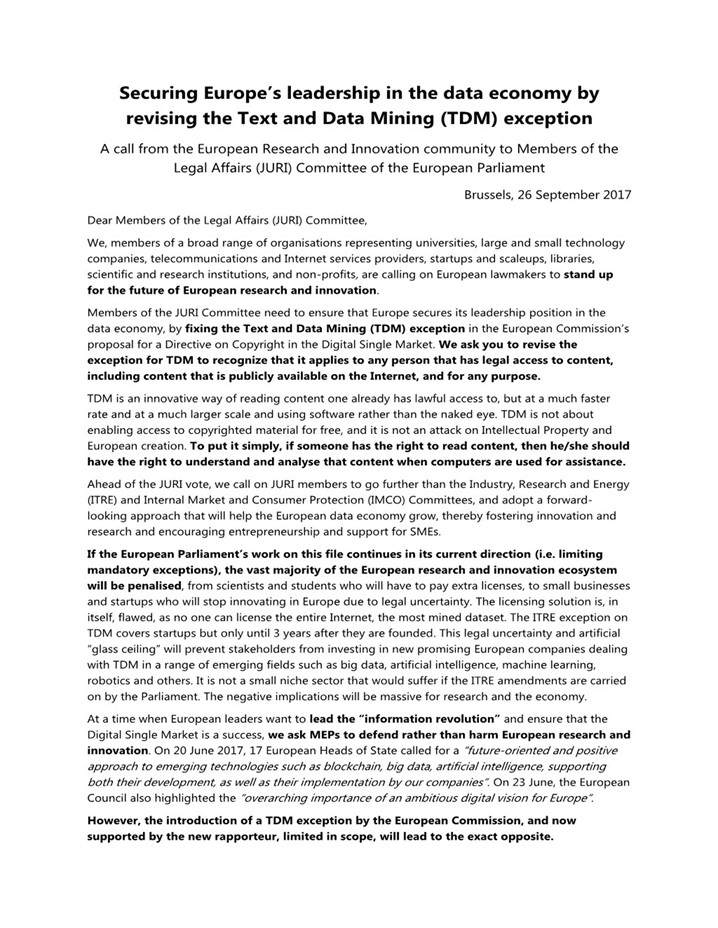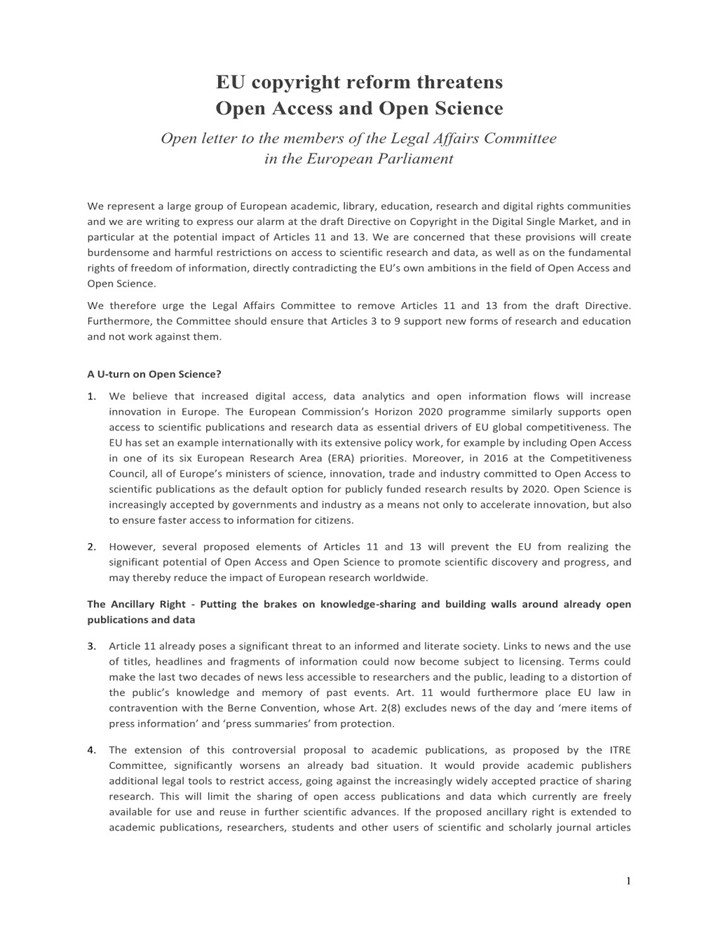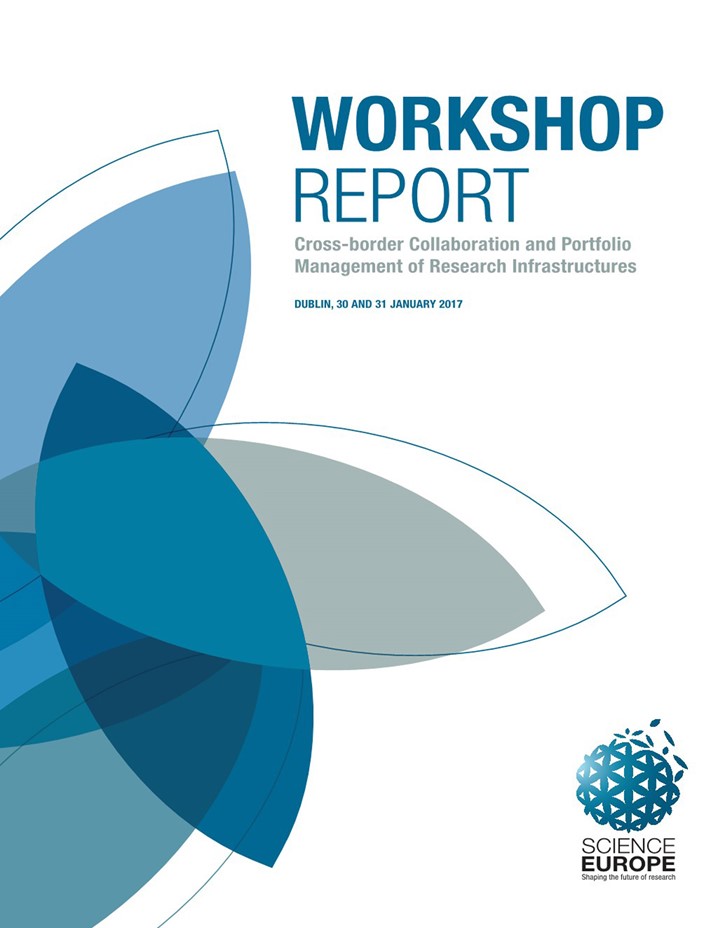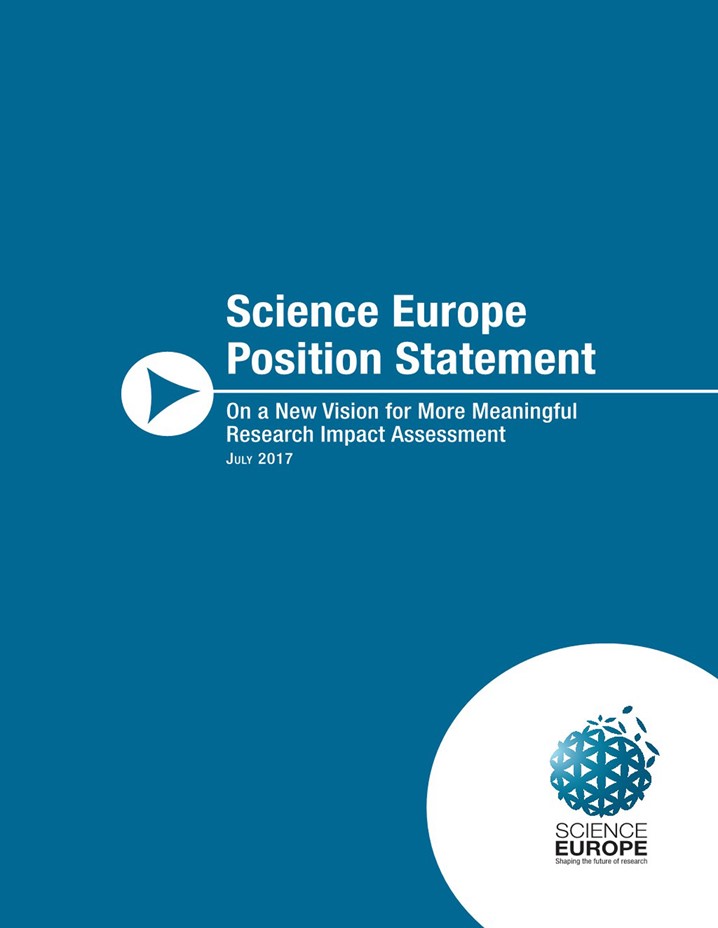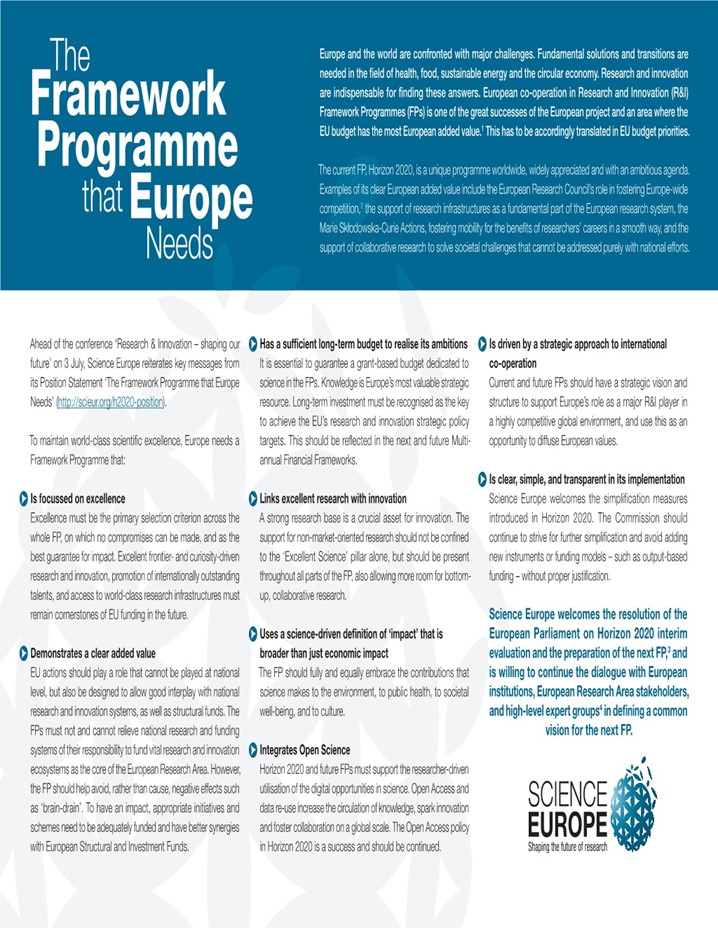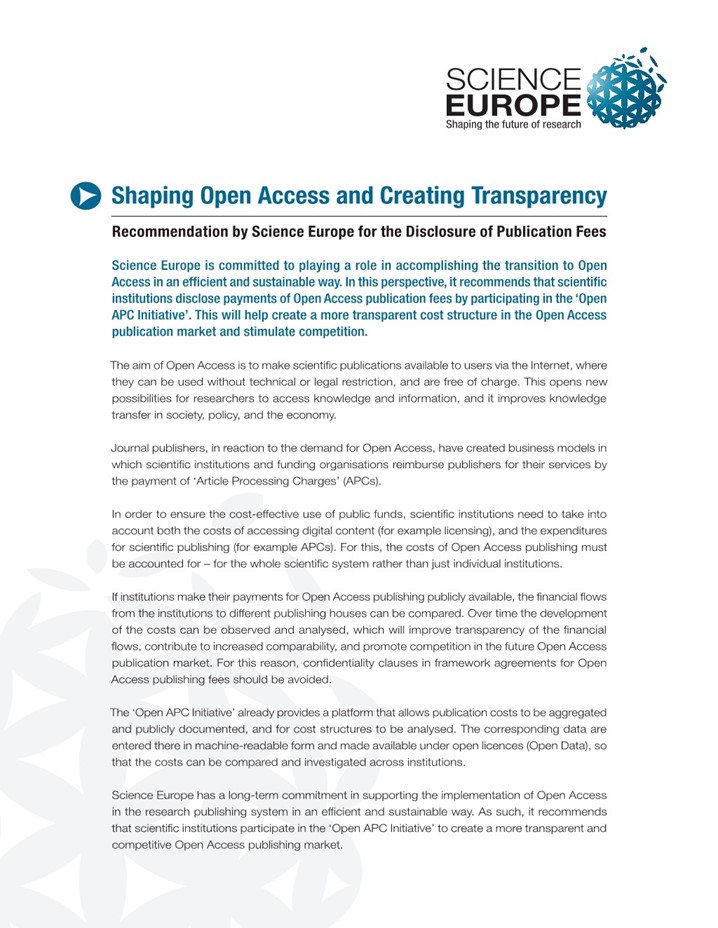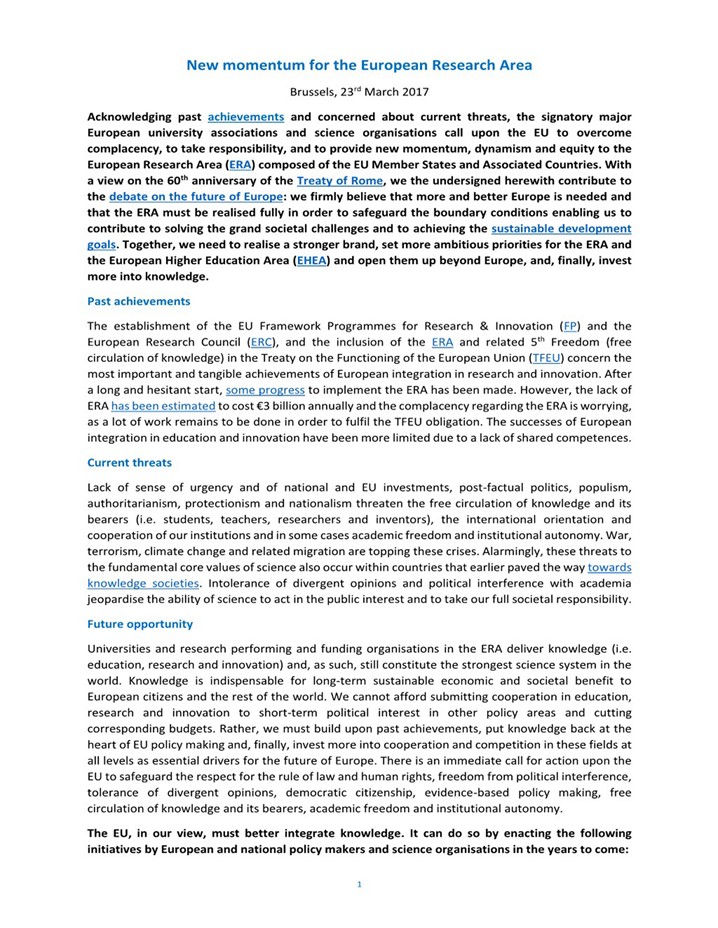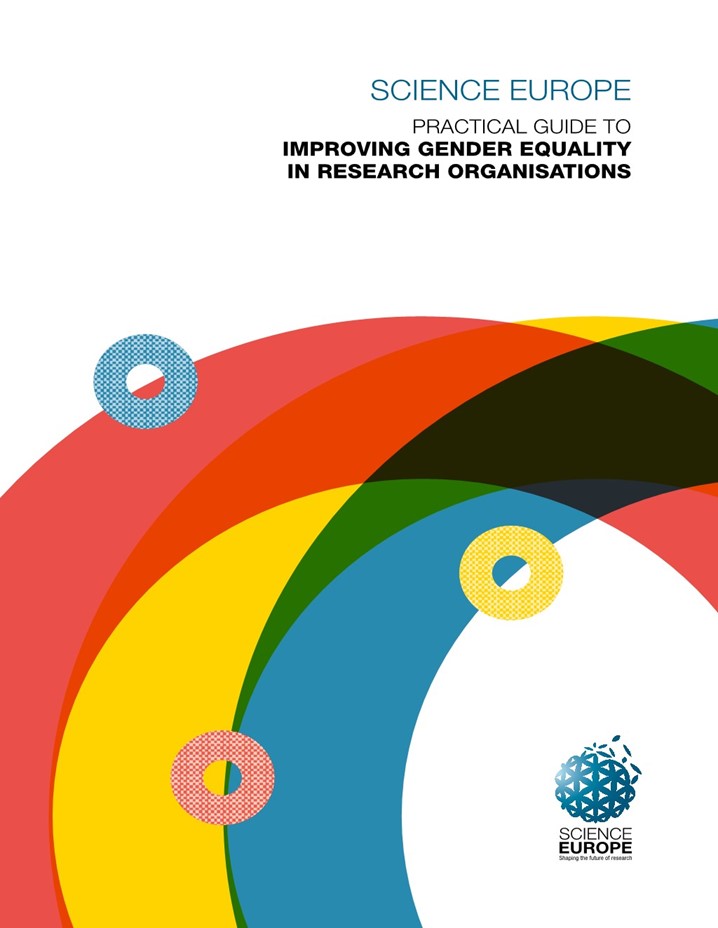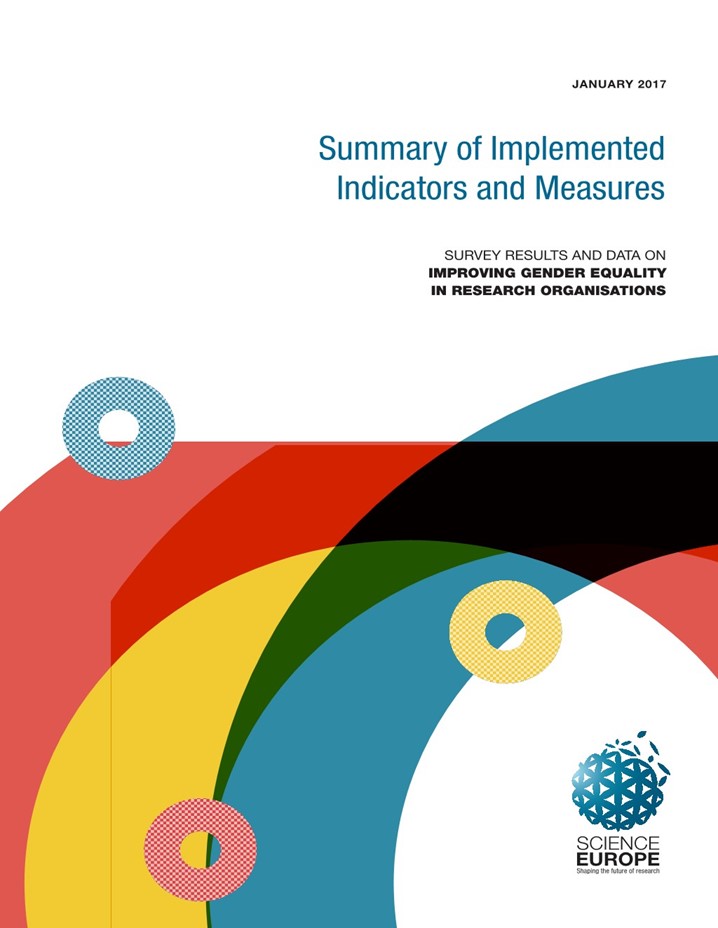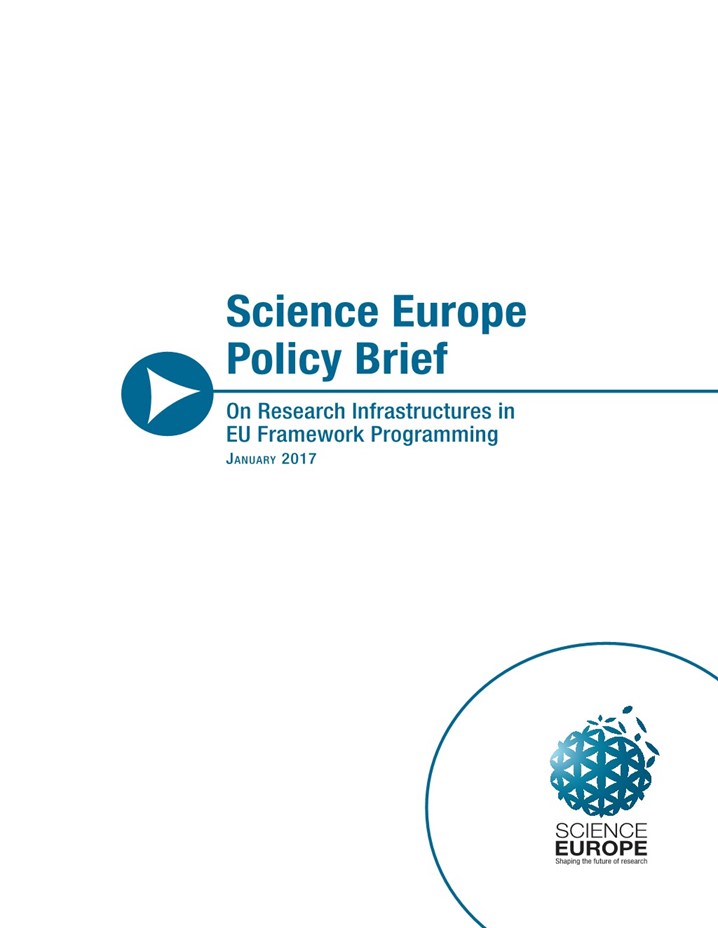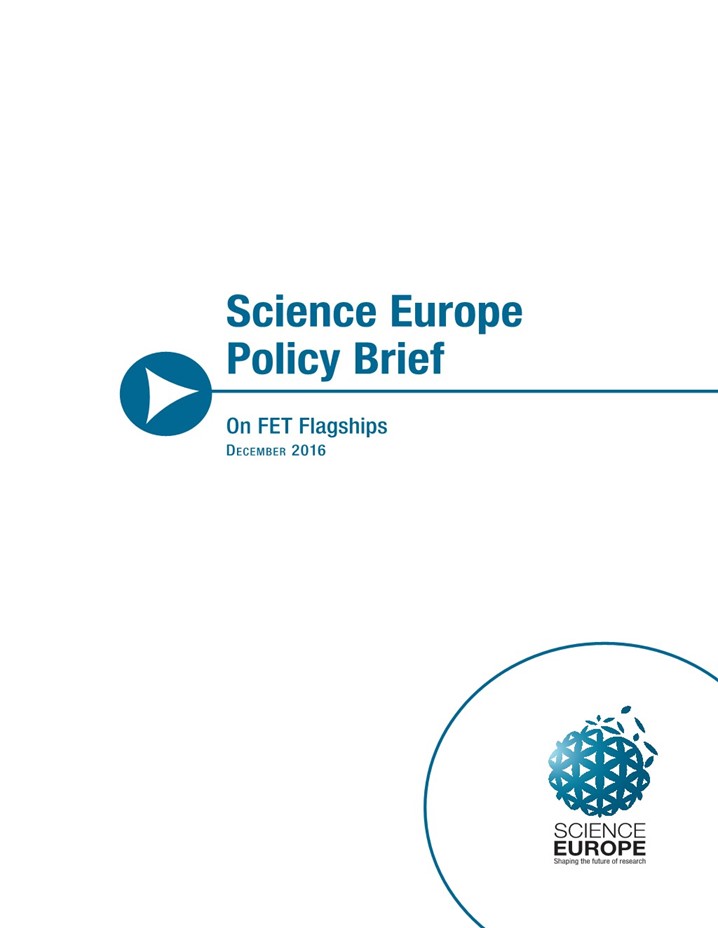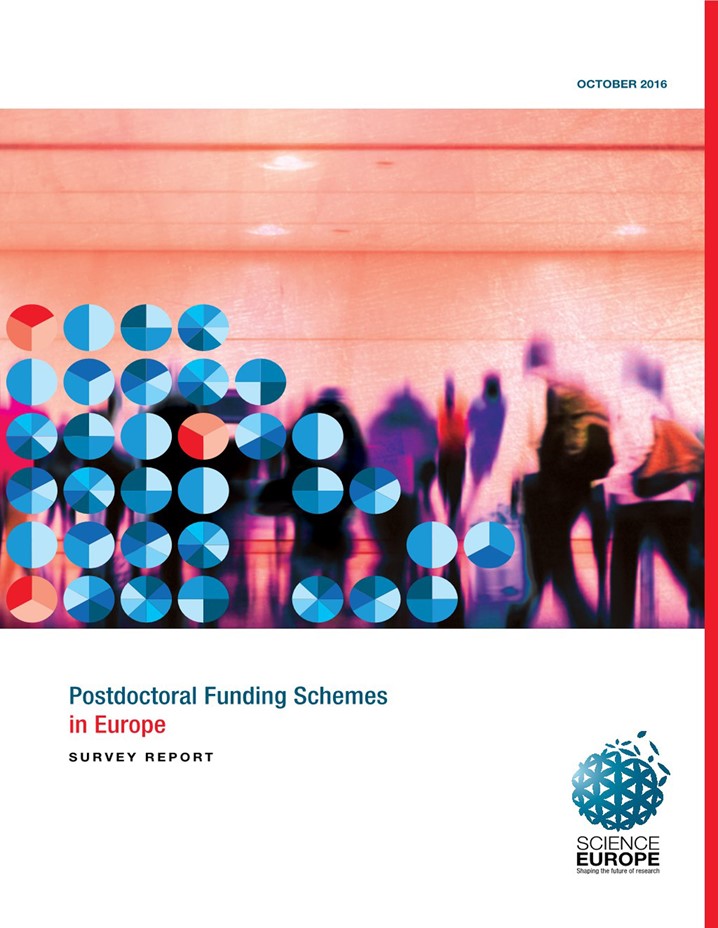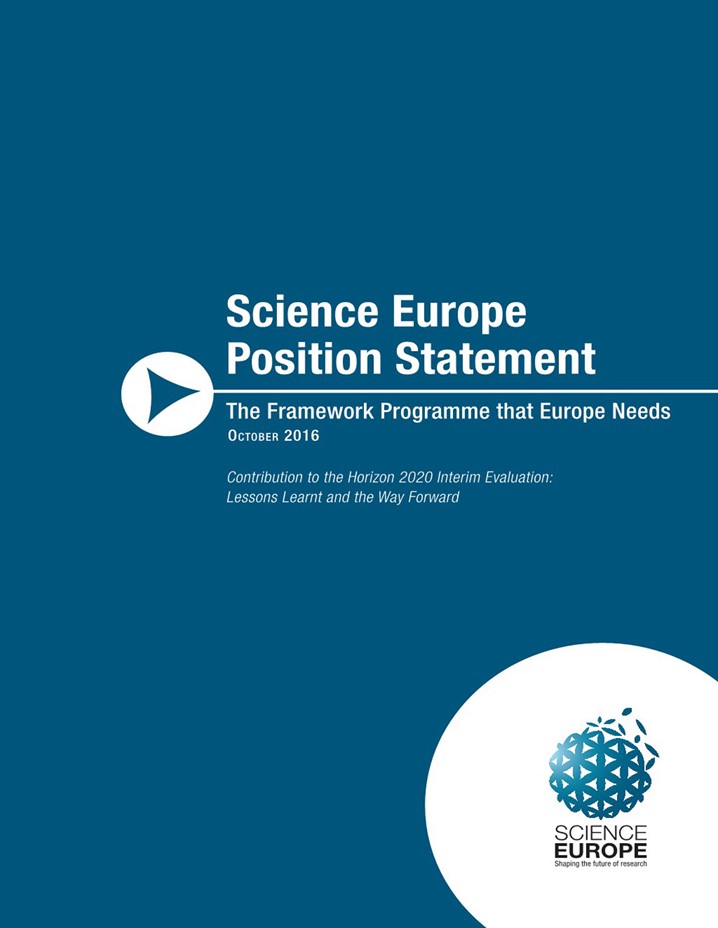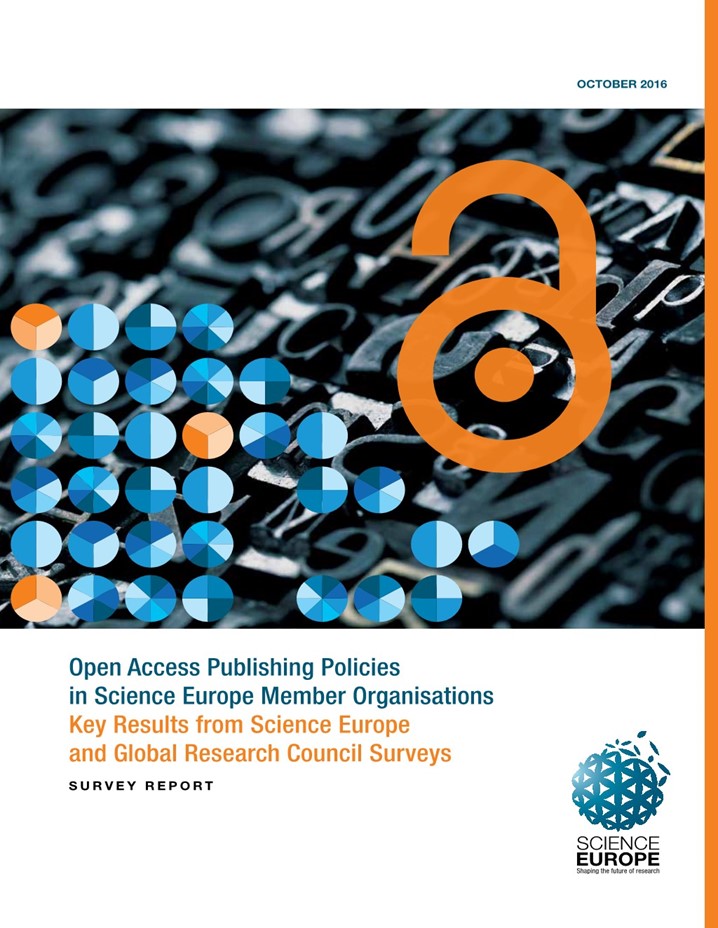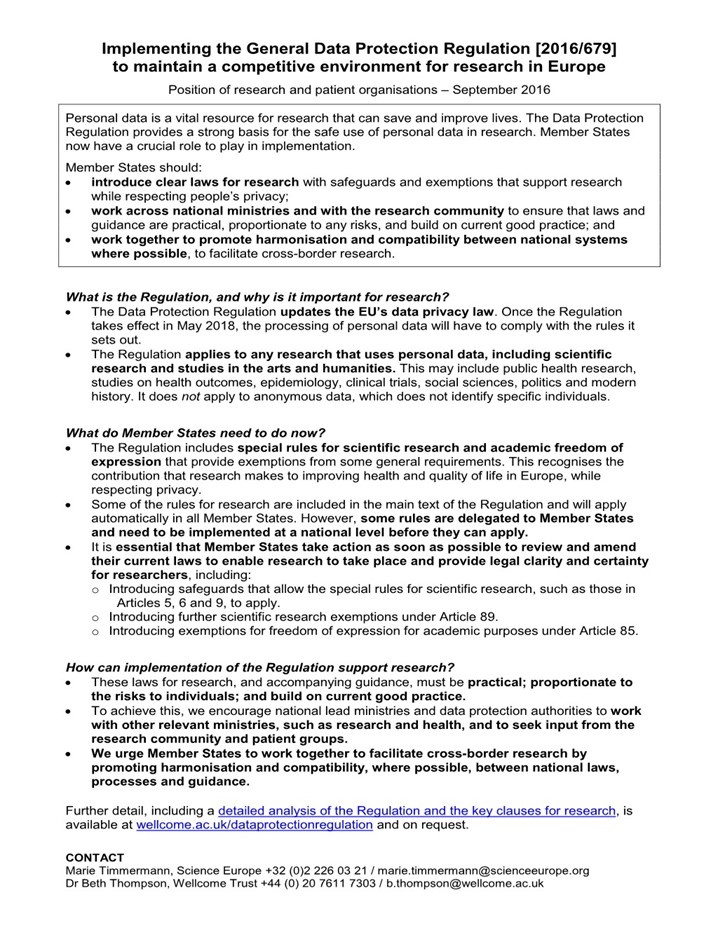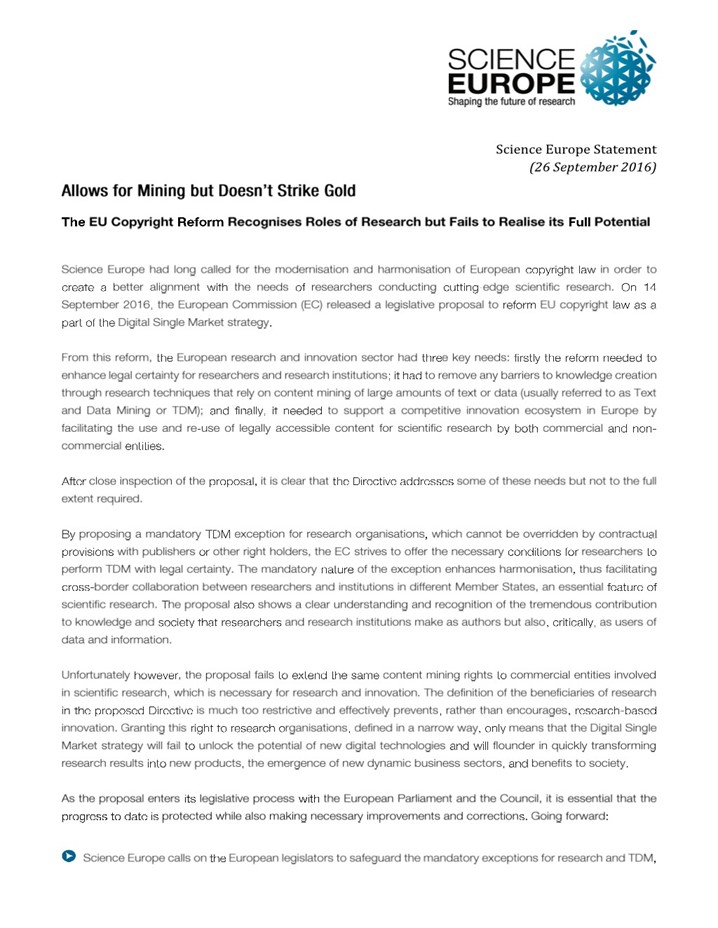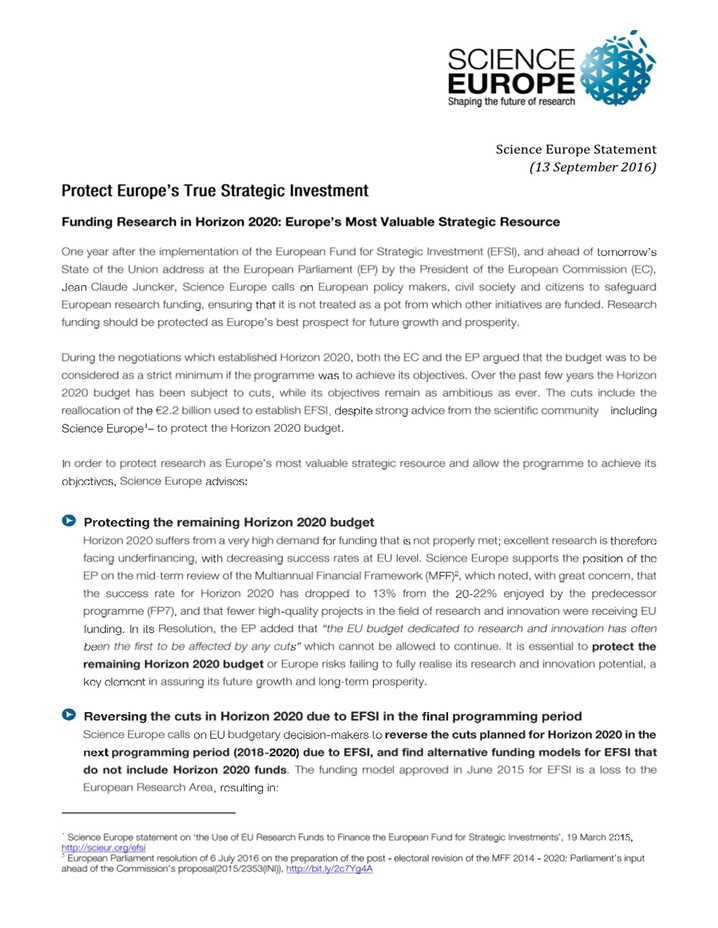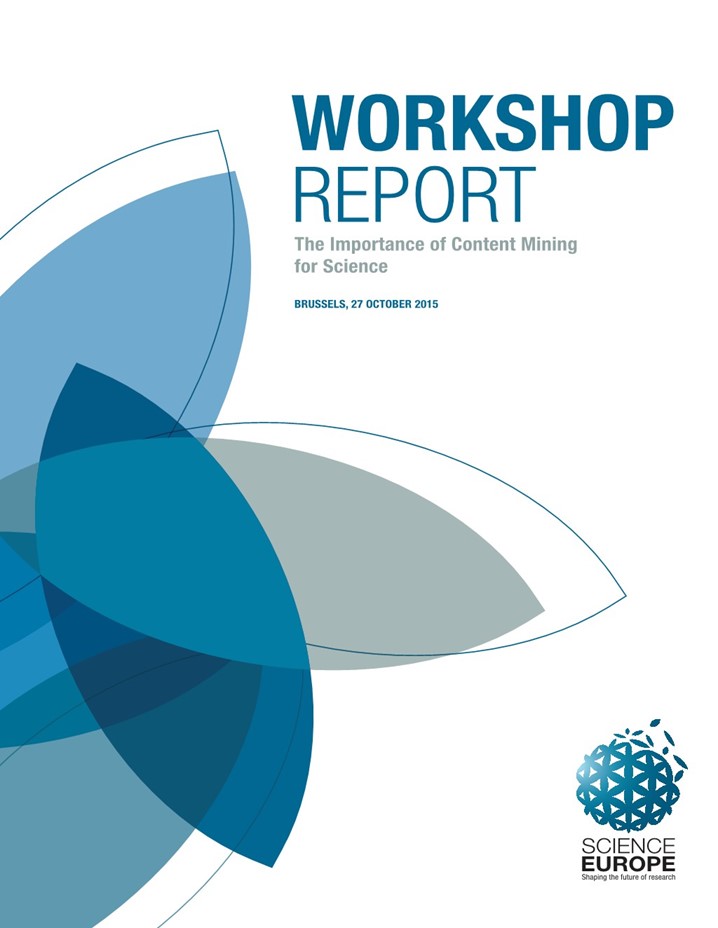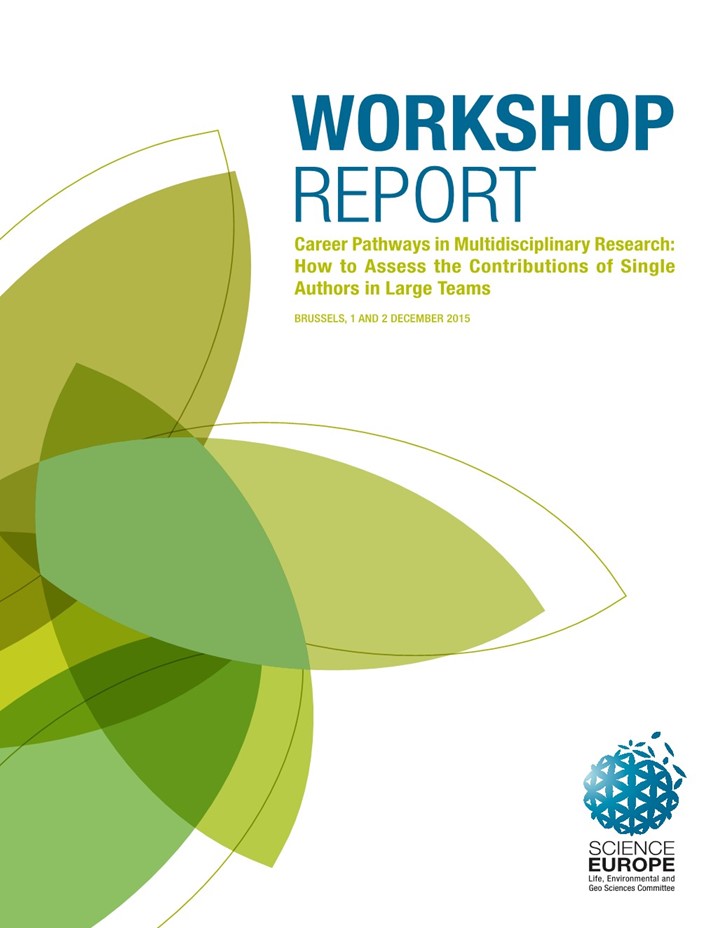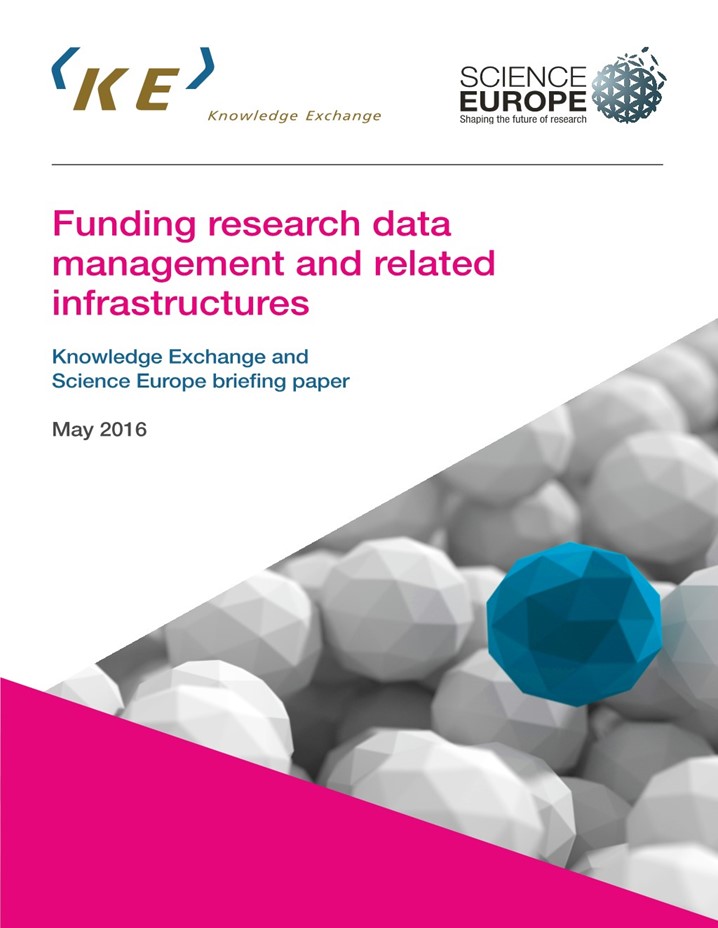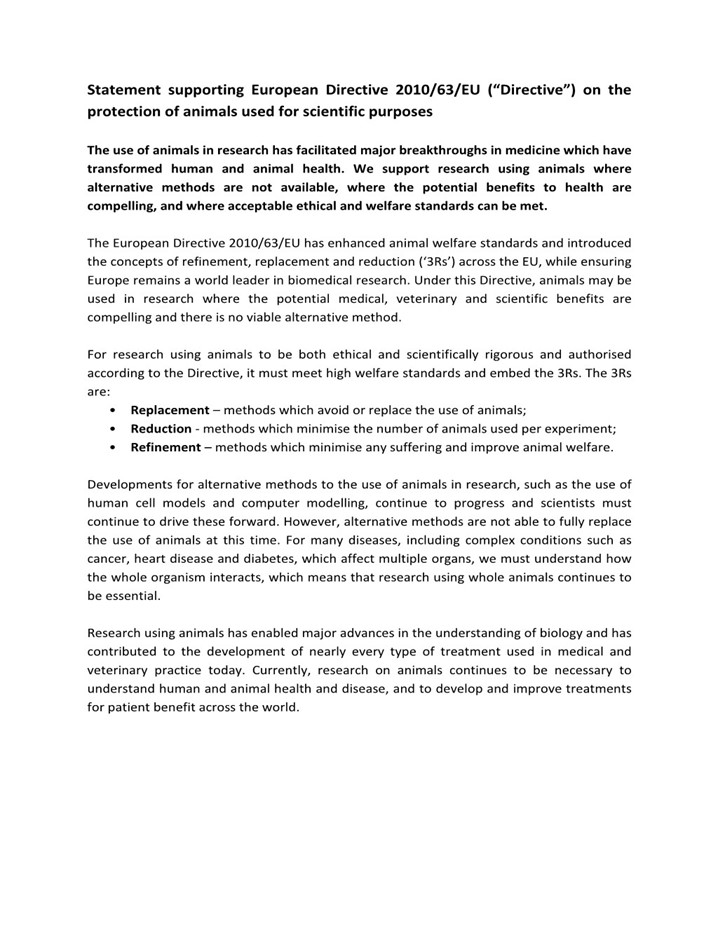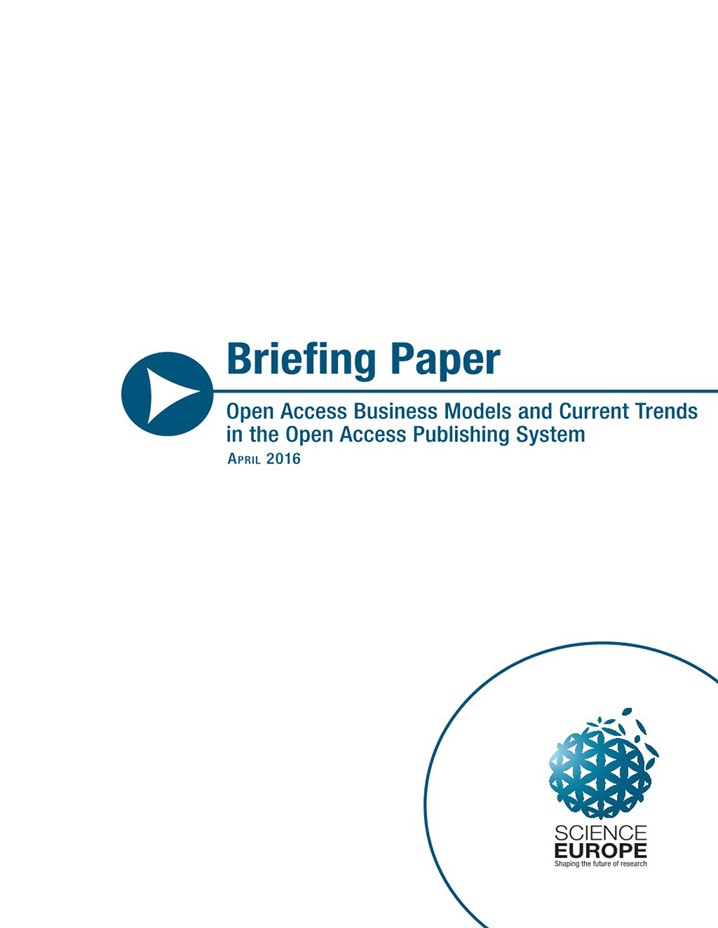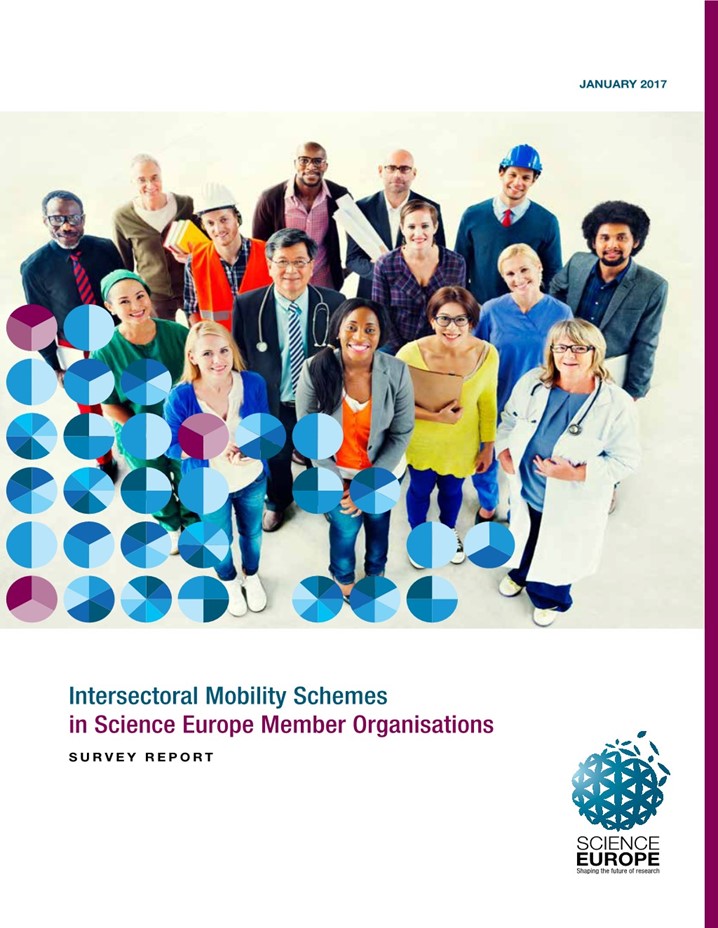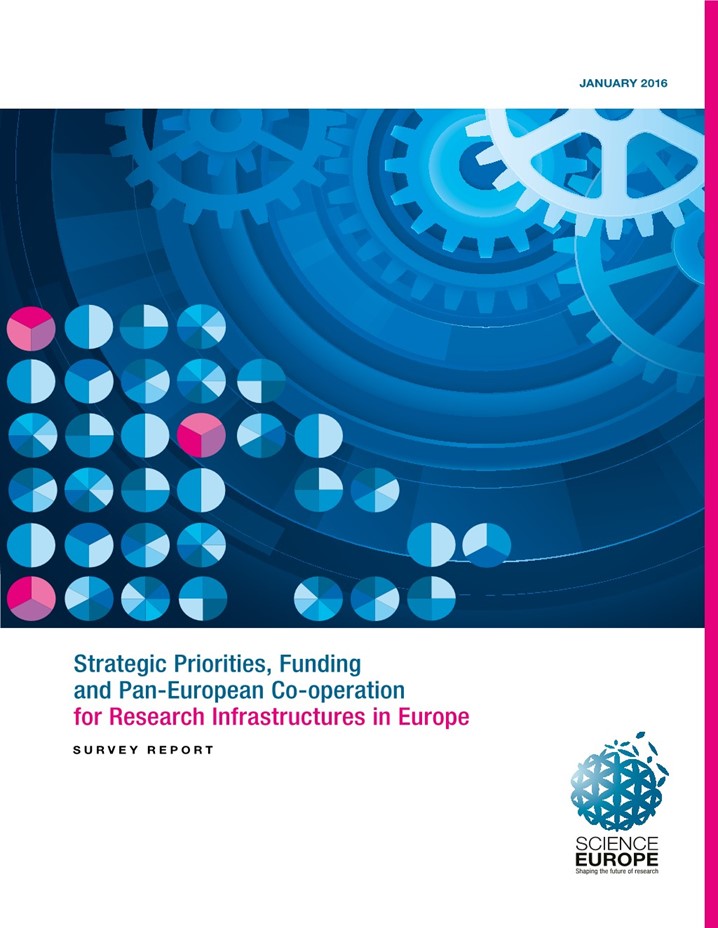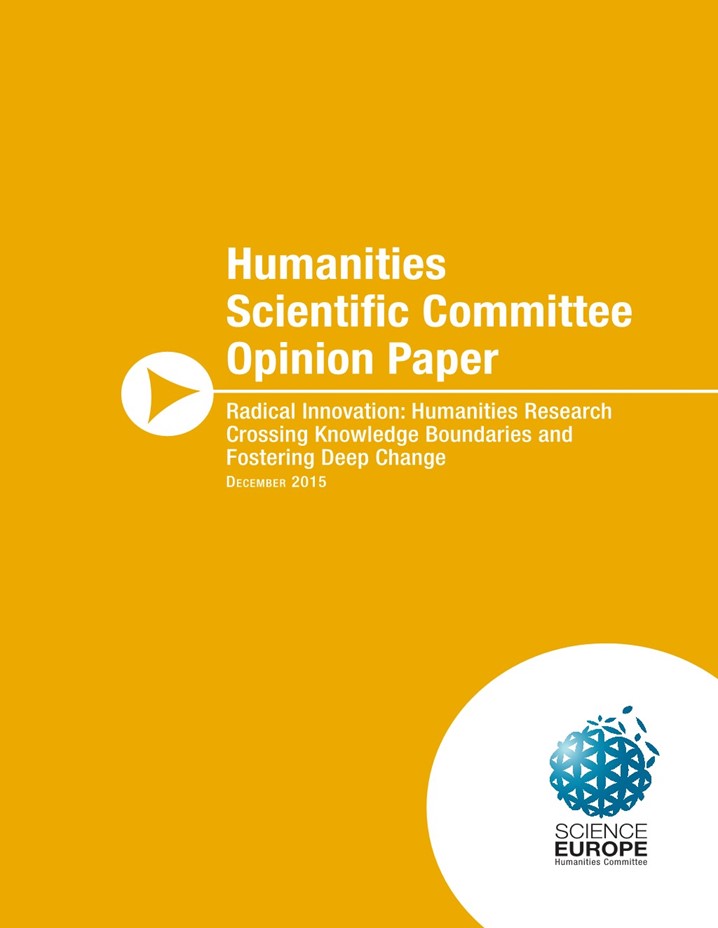Member-only content is available on this page. Please log in to view this content.

Our resources
Discover Science Europe’s comprehensive library of resources, including the most recent publications, briefings, and position statements.
169 resource(s) found
Securing Europe’s Leadership in the Data Economy by Revising the TDM Exception
This open letter, signed by the European Research and Innovation community, calls on Members of the European Parliament and the Council to secure Europe’s leadership in the data economy by revising the Text and Data Mining (TDM) exception in the draft of the Directive on Copyright in the Digital Single Market. It calls for the TDM exception to apply to any person that has legal access to the content to help the European data economy grow, foster innovation, and encourage entrepreneurship.
EU Copyright Reform Threatens Open Access and Open Science
This open letter issued by the international research community calls on Members of the European Parliament to halt the adoption of harmful provisions found in the current draft of the Directive on Copyright in the Digital Single Market, which could threaten Open Access and Open Science.
Cross-border Collaboration and Portfolio Management of Research Infrastructures
This report explores the challenges facing research funding and performing organisations to design and manage balanced Research Infrastructure (RI) portfolios and design effective cross-border collaborations when setting up and running joint RIs. Discussions with a broad range of stakeholders took place at a dedicated workshop co-hosted by Science Foundation Ireland and the Health Research Board.
Position Statement on a New Vision for More Meaningful Research Impact Assessment
Science Europe advocates using the notion of ‘value’ of research. This is wider than ‘impact’ and reflects the intrinsic value of scientific research and its capacity to generate new knowledge. This statement provides a series of key principles and actions for policy makers and research organisations to help bring forward a new vision of impact assessment.
Key Principles to Shape the Future Framework Programme
Science Europe shares eight key principles to shape the future Framework Programme. Examples of its European added value include the ERC’s role in fostering Europe-wide competition, the support of Research Infrastructures as a fundamental part of the European research system, and the support of collaborative research to solve societal challenges that cannot be addressed purely with national efforts.
Science Europe Recommendation for the Disclosure of Publication Fees
Science Europe is committed to playing a role in accomplishing the transition to Open Access in an efficient and sustainable way and encourages scientific institutions to disclose payments of Open Access publication fees by participating in the ‘Open APC Initiative.’ This paper highlights how this will help create a more transparent cost structure in the Open Access publication market and stimulate competition.
Joint Statement on New Momentum for the European Research Area
CESAER, EUA, LERU, and Science Europe release this joint statement calling on European policy makers to provide new momentum for the European Research Area (ERA). The ERA is a treaty obligation of the European Union and today, more than ever, greater commitment to research is needed to tackle the challenges that Europe faces. By strengthening the ERA, and increasing funding for research, European policy makers would be giving Europe the resources it needs to embark on another 60 years of peace and prosperity.
Practical Guide to Improving Gender Equality in Research Organisations
Research organisations have a crucially important role to play in addressing gender inequality; not only for the benefit of their own ecosystem, but to contribute to progress in wider society. This practical guide sets out good practice examples and guides the further development of context specific approaches including how to avoid unconscious bias in peer review processes, how to monitor gender equality, and how to improve grant management practises.
Summary of Implemented Indicators and Measures: Survey Results and Data on Improving Gender Equality in Research Organisations
This document complements the ‘Practical Guide to Improving Gender Equality in Research Organisations.’ It provides the qualitative and quantitative background data on which parts of the guide are based and measures the implementation of gender equality measures within Science Europe Member Organisations.
Policy Brief on Research Infrastructures in EU Framework Programming
Research Infrastructures (RIs) are of utmost importance for Europe’s global competitiveness and this paper puts forward the case of how the focus on RIs in Horizon 2020 should be enhanced.
Policy Brief on FET Flagships
This briefing is a contribution to the evaluation and development of Future and Emerging Technologies (FET) Flagships under Horizon 2020. It highlights lessons learned about the added value and limitations of the current FET Flagships and provides recommendations for the development of the FET Flagship instrument.
Postdoctoral Funding Schemes in Europe
The postdoctoral period is a critical phase in a researcher´s career: it is when (s)he chooses whether to pursue a scientific career, and succeeds in achieving that goal, or not. Science Europe has carried out a mapping of support opportunities for postdoctoral researchers, or ‘postdocs’, to improve understanding of what funders do to support researchers’ careers after the completion of their PhD, and to learn whether existing funding schemes can be improved in terms of career support.
Position Statement on the Framework Programme that Europe Needs
Horizon 2020 is a unique programme worldwide; it is widely appreciated and has an ambitious agenda. It can meet expectations as long as its nature as a programme capable of supporting excellent research is reinforced. Ahead of the interim evaluation of Horizon 2020, Science Europe shares the extensive experience of its Member Organisations, many of whom have decades of experience in setting up world-leading research programmes or are among the main beneficiaries of the Framework Programmes.
Open Access Publishing Policies in Science Europe Member Organisations: Key Results from Science Europe and Global Research Council Surveys
Open Access greatly improves the pace, efficiency, and efficacy of research. This report highlights the efforts made by public research organisations in Europe to develop and implement Open Access policies and addresses the challenges faced by different actors in order to facilitate and accelerate the transition towards full Open Access for all scholarly publications by 2020.
Joint Statement on Implementing the General Data Protection Regulation to Maintain a Competitive Environment for Research in Europe: Position of Research and Patient Organisations
This joint statement on the implementation of the Data Protection Regulation (DPR), facilitated by Science Europe and Wellcome and released by the wider research community, highlights the crucial role Member States must now play in its implementation by reviewing and amending their current laws to enable research to take place.
Allows for Mining but Doesn't Strike Gold: Science Europe Copyright Statement
The recent legislative proposal from the European Commission to reform EU copyright law addresses some needs, but not to the full extent required. Science Europe calls for research and data mining exceptions to ensure that copyright legislation is friendly to research and innovation.
Funding Research in Horizon 2020: Europe’s Most Valuable Strategic Resource
Science Europe expresses strong concern that the research funding budget be maximised in Horizon 2020 so that Europe can fully realise its target of becoming a smart, sustainable and inclusive economy. Funding for research and innovation in Europe is a critical strategic investment which is essential for Europe’s long-term growth and prosperity.
The Importance of Content Mining for Science
Text and data mining (TDM) is hugely important for science as it can facilitate better research and the free flow of knowledge across borders. This report urges policy-makers to update the legal framework in the context of the upcoming EU copyright reform in order to allow TDM for commercial and non-commercial means, and also to clarify the legal position surrounding it.
Career Pathways in Multidisciplinary Research: How to Assess the Contributions of Individual Members of Large Teams
Scientific research increasingly relies on large collaborative, multi-disciplinary, and interdisciplinary research teams – often working across borders and across sectors – to address big societal questions. This report considers how research organisations can best support collaborative, multi-disciplinary, and interdisciplinary research teams. It also considers how can they allocate appropriate credit for research input and better evaluate multidisciplinary research.
Briefing Paper on Funding Research Data Management and Related Infrastructures
This joint briefing paper with Knowledge Exchange informs the discussion on the funding of Research Data Management (RDM) and related infrastructures in Europe, helps raise awareness of the current challenges, and communicates opportunities for co-ordinated action to relevant stakeholders. The paper highlights that the funding of Research Data Infrastructures, enabling RDM, comes from a great variety of sources and institutions that have different responsibilities and that operate at local, national, and international levels.
Joint European Statement in Support of European Directive 2010/63
Protecting the use of animals for scientific purposes is of utmost importance. Over 240 leading biomedical research organisations, learned societies, industry representatives, universities and patient groups in Europe release this joint statement in support of the Directive 2010/63/EU which outlines the protection of the use of animals for scientific purposes.
Briefing Paper on Open Access Business Models and Current Trends in the Open Access Publishing System
Decisive action is needed to transition towards more effectively and efficiently towards an Open Access publishing system. This paper presents some of the recent trends and developments in the transition to Open Access, as well as various business models currently in use which aim to facilitate this transition. It also highlights expected benefits and underlines remaining challenges.
Intersectoral Mobility Schemes in Science Europe Member Organisations
Intersectoral mobility of researchers is gaining political momentum in Europe, with more interest in bringing in the competences that characterise researchers into public, private, and not-for-profit sectors. This survey report looks at the diversity of measures that are in place within Science Europe Member Organisations to enable researchers to be more mobile across different sectors of employment
Strategic Priorities, Funding and Pan-European Co-operation for Research Infrastructures in Europe
The demand for Research Infrastructures is high throughout all fields of science. However, the available funds for capital investment and running costs are generally limited and do not nearly meet the demand. Effective allocation of available funds and effective operation of facilities is therefore important in order to serve the scientific community in the best possible way.
Radical Innovation: Humanities Research Crossing Knowledge Boundaries and Fostering Deep Change
This Opinion Paper shows how arts and humanities research is at the heart of innovation processes. In this paper the Science Europe Scientific Committee for the Humanities advocates the need for a wider and deeper understanding of the concept of innovation, in order to better prepare Europe to tackle global challenges. The Committee points out ways to achieve stronger European leadership through the promotion of radical innovation by highlighting the contribution of arts and humanities research.

